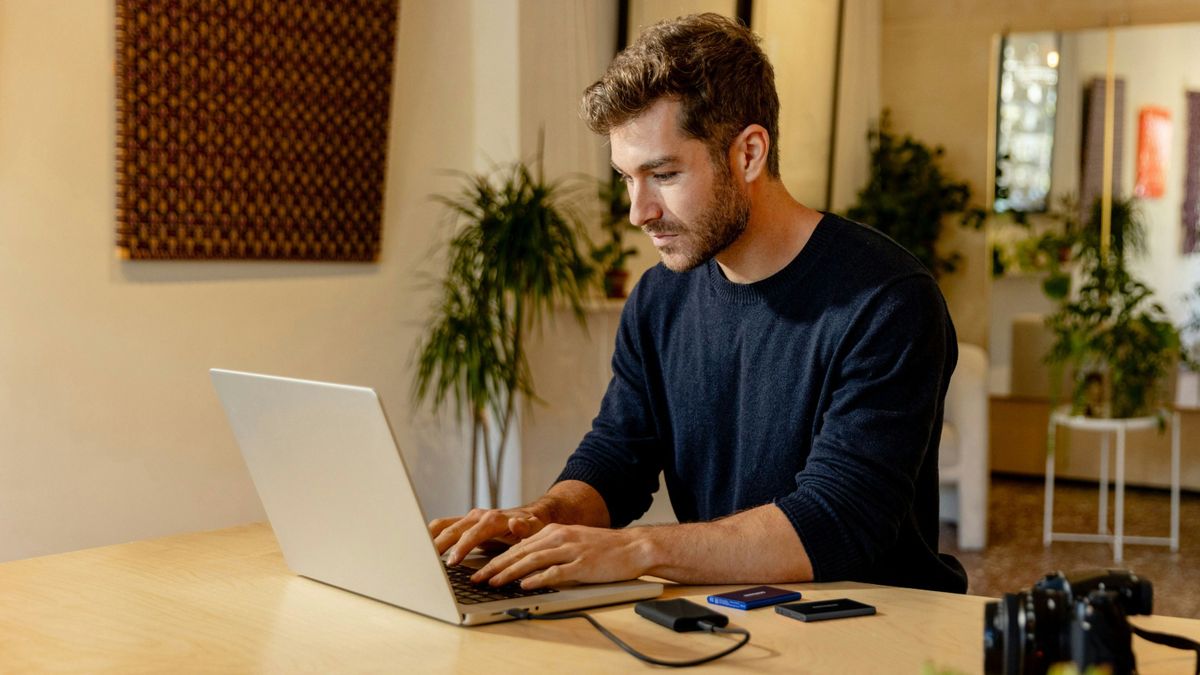Why Posture Matters

I’ve been dealing with back pain since I was 14. Looking back, I remember slouching on purpose because it seemed “cooler” than sitting upright. At that age, sitting tall felt stiff and uncool, while leaning back in my chair or hunching over gave me the appearance of being relaxed and laid-back. What felt harmless at the time set me up for a cascade of issues that I didn’t fully understand until much later.
By the time I was pursuing my dream of a professional soccer career, the consequences of those habits had caught up with me. I suffered two herniated discs in my lower back, which abruptly ended my time on the field. Corrective exercises helped restore some balance in my body and gave me hope that I could move freely again. For a while, I thought I had overcome the problem.
But life had another lesson waiting. As I transitioned from being. and athlete and studying sports to building my career, I spent countless hours behind a laptop. Ten hours a day of sitting, writing, planning, and recording online health programs created a new problem: another herniated disc — this time in my cervical spine. The irony was striking. I had rebuilt my lower back through training, only to undo my progress by neglecting my posture in everyday life.
That was my wake-up call: posture isn’t just about how you look. It shapes your health, your energy, and even your mindset.
The Hidden Costs of Poor Posture
When posture breaks down, the effects ripple across the body and mind. It’s rarely just about a stiff back or a sore neck. Some of the most common consequences include:
- Muscle imbalances that make movement less efficient and more prone to injury.
- Nerve compression that leads to pain, numbness, or tingling sensations in the arms or legs.
- Poor circulation that reduces oxygen and nutrient supply to muscles and joints.
- Headaches and neck tension that can interfere with concentration and productivity.
- Unhealthy breathing patterns where shallow chest breathing replaces deep diaphragmatic breaths, limiting oxygen intake.
- Lower mood and reduced energy, as slouching has been shown to influence hormones and emotional states.
- Increased stress and reduced self-esteem, since posture also communicates confidence — both to others and to ourselves.
I experienced many of these firsthand, and I’ve seen the same pattern in thousands of people I’ve worked with. The truth is, posture is not just about the spine — it influences everything from how you feel to how you perform at work, at home, and in sports.
From Struggle to Solution
Corrective exercises helped me at first, but eventually I realized that a few hours of workouts each week couldn’t undo what happens during the other 165 hours we spend working, commuting, and sitting. I had been treating posture like a side project, when in reality it needed to be woven into my entire lifestyle.
That shift in perspective was crucial. I began designing routines not just for training sessions, but for daily living: mobility breaks in between emails, breathing resets before important meetings, and simple cues to remind myself to sit or stand differently. Posture became less about “doing exercises” and more about building an environment and a rhythm that supported my body throughout the day.
Meeting the team at MinkTec was the turning point. Together, we developed rectify, a smart sensor shirt designed to track and train posture in real time. Unlike a workout plan that you follow a few times a week, rectify works with you during the hours when awareness usually slips away — at your desk, in the car, or even on the couch. The shirt doesn’t just buzz when you slouch; it teaches your body new patterns over time. It helps you reprogram how you move, breathe, and hold yourself so that better posture becomes your default, not an exception.
For me personally, it was a game changer. Today I feel stronger, more mobile, and more energized than probably at any other point in my life. I don’t just train for posture — I live it.
Takeaway
Posture is not just about standing tall. It’s the foundation of physical health, mental clarity, and resilience. If you spend long hours at a desk or on a laptop, your posture habits are either helping you — or quietly working against you. In fact, improving posture might be the most overlooked longevity hack of all. It influences breathing, circulation, stress levels, and energy — all of which play a role in how well and how long we live.
The good news is that small changes make a big difference. Here are a few ways to get started right away:
- Move often: Stand up and walk around at least every 30–60 minutes. Even a quick lap around the office or a stretch by your desk resets your muscles and circulation.
- Stretch the spine: Reach your arms overhead and lean gently back to counteract the rounded, forward posture that most of us fall into while working.
- Check ergonomics: Set up your workspace so your knees, hips, and elbows are at roughly 90-degree angles. Position your screen so the top edge is level with your eyes, reducing strain on your neck.
- Breathe deeper: Pay attention to whether your breath is stuck in your chest. Expanding through the ribcage and belly not only improves oxygen flow but also resets posture naturally.
- Practice awareness: Posture slips when we get absorbed in tasks. A reminder, whether it’s a note on your desk or a gentle nudge from technology, can bring your attention back before problems start.
These small adjustments, repeated consistently, can transform how you feel and perform each day. Over time, they build resilience that no quick fix or one-time training session can match.
And if you’d like extra support, I’d love to invite you to try the free version of our app. It includes posture reminders and a library of exercises designed to fit seamlessly into your daily life. Think of it as a friendly companion nudging you toward healthier movement patterns and a stronger, more energized version of yourself.
Author: Ramin Waraghai
Ramin Waraghai, former semi-professional soccer player turned sports scientist, coach and entrepreneur, is the founder of Rebalanced LLC and Sens-AI Inc.. After career-ending injuries, he healed his own back and knee pain and has since helped over 15,000 people through certified online programs, books, and technology like the "rectify" posture shirt. Now based in Los Angeles, his mission is to empower people to rebalance body and mind for pain-free, inspired lives.




